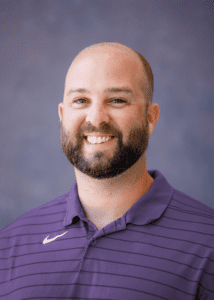

SPORTS MEDICINE PHYSICIANS
From youth athletes and weekend warriors, to active people and elite athletes, Sports Medicine Physicians understand YOU. A Sports Medicine Physician is an important player on your health team who has significant specialized training in both the treatment and prevention of illness and injury to help you achieve your personal best and lead a healthier lifestyle.
Sports Medicine is a recognized subspecialty by the American Board of Medical Subspecialties by Medicare.

Joseph M. Garcia, MD
Primary Care Sports Medicine and Family Practice
Undergraduate: Louisiana State University
Medical School: Medical University of the Americas
Residency: Louisiana State University, Shreveport, LA
Fellowship: Sports Medicine Fellow, University of Alabama, Tuscaloosa, AL
Board Certified: American Board of Family Medicine
Primary Care Sports Medicine
Member: American Medical Society for Sports Medicine
THE DIFFERENCE BETWEEN A SPORTS MEDICINE PHYSICIAN AND AN ORTHOPEDIC SURGEON
Both are well trained in musculoskeletal medicine. Sports Medicine Physicians specialize in the non-operative treatment of musculoskeletal conditions. Orthopedic surgeons are also trained in the operative treatment of these conditions. However, approximately 90% of all sports injuries are non-surgical. The Sports Medicine Physician can maximize non-operative treatment, guide appropriate referrals tho physical and occupational therapies, and if necessary expedite referral to an orthopedic/sports surgeon.
Additionally, the majority of Sports Medicine Physicians are experienced in ultrasonography, a rapidly developing technology use for diagnostic as well as treatment of musculoskeletal injuries. Regenerative medicine (sometimes referred to as “biologic”) is also becoming a popular treatment option being utilized by the Sports Medicine Physician.
Common examples of musculoskeletal problems include:
- Acute injuries (such as ankle sprains, muscle strains, knee & shoulder injuries, and fractures)
- Overuse injuries (such as rotator cuff and other forms of tendinitis/tendinosis, stress fractures)
- Medical and injections therapies for osteoarthritis
Sports Medicine Physicians have received additional training in the non-musculoskeletal aspects of sports medicine. Common examples of these include:
- Concussions (mild traumatic brain injury) and other head injuries
- Athletes with chronic or acute illness (such as infectious mononucleosis, asthma or diabetes)
- Nutrition, supplements, ergogenic aids, and performance issues
- Exercise prescription for patients who want to increase their fitness
Injury prevention - “Return to play” decisions in the sick or injured athlete
- Recommendations on safe strength training and conditioning exercises
- Healthy lifestyle promotion
Most Sports Medicine Physicians also serve as Team Physicians for local and/or national teams and clubs. These physicians must fulfill published qualifications with the following responsibilities:
- Pre-participation physical examination
- Injury assessment and management
- Care of sports-related and general medical needs of athletes
- Sports psychology issues
- Substance use issues
- Education and counseling on illness & injury prevention
- Coordinating care with other members of the sports medicine team to include athletic trainers, physical therapists, personal physicians, other medical and surgical specialties, and other ancillary personnel of specialty care and rehabilitation
- Communication with athletic trainers, coaches, school administration, as well as athletes and their families.
CONVENIENCE OF CARE
Located in Houma, SLMA makes access to care and scheduling easy.
To schedule an appointment with Dr. Garcia please call 985-262-1639.

PHYSICIANS
Want to search our physicians?
LOCATIONS
We have multiple locations.
CONTACT US
Need to schedule an appointment?
